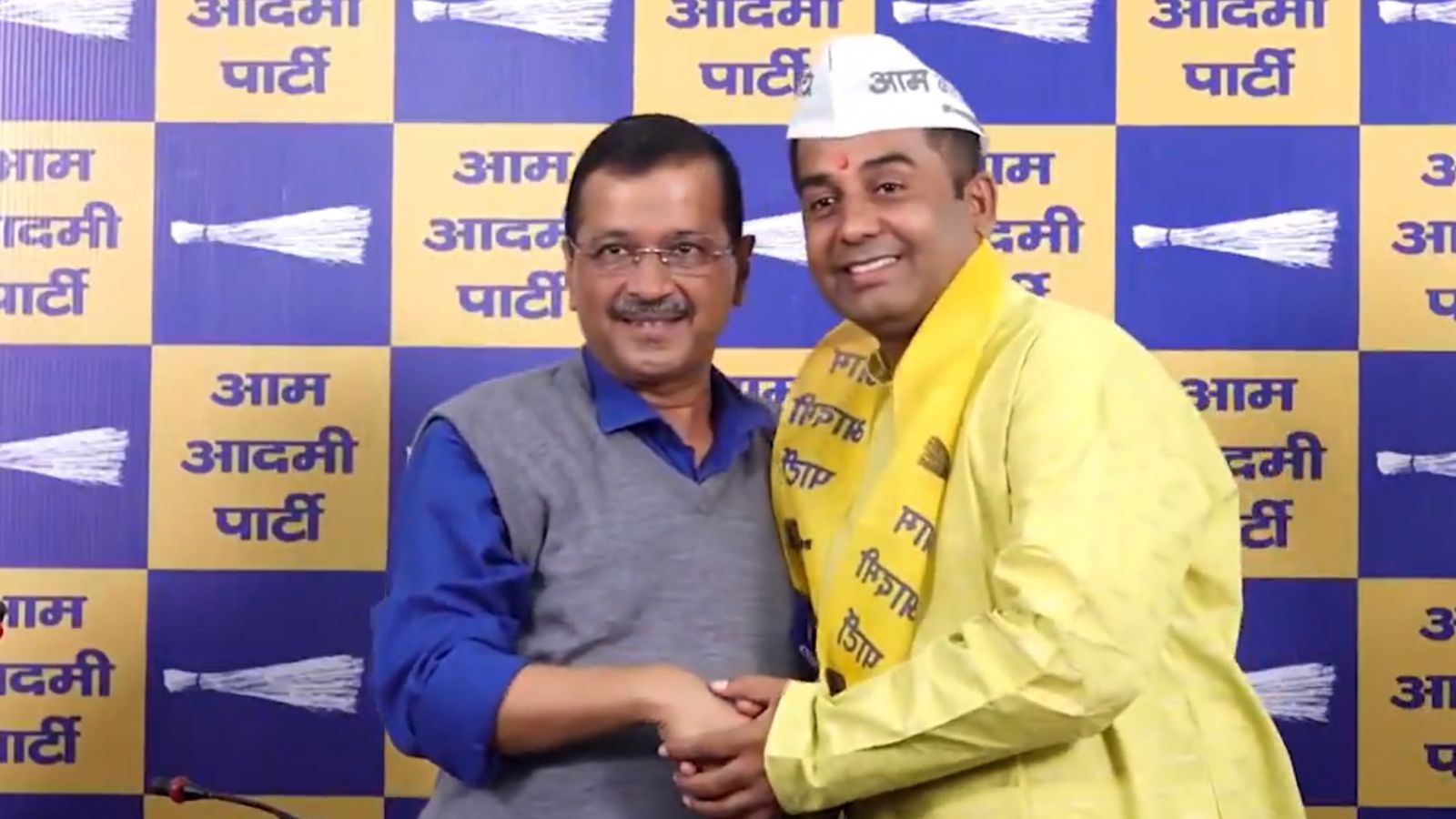 |
|
The Indian political landscape witnessed a significant shift with the recent defection of Anil Jha, a prominent Purvanchali leader from the Bharatiya Janata Party (BJP), to the Aam Aadmi Party (AAP). This move, occurring just hours after the AAP experienced the resignation of its Transport Minister and Najafgarh MLA, Kailash Gahlot, has injected a new layer of complexity into the upcoming Delhi Assembly elections scheduled for February. Jha, a two-time former MLA from Kirari, was welcomed into the AAP by party supremo Arvind Kejriwal, who lauded him as one of the most influential Purvanchali leaders in Delhi's political arena. This strategic acquisition is expected to bolster the AAP's support base, particularly within the substantial Purvanchali community residing in Delhi's unauthorized colonies.
Jha's decision to join the AAP was explicitly attributed to his admiration for Arvind Kejriwal's leadership and the AAP government's demonstrable efforts to improve the living conditions of Purvanchali residents in unauthorized colonies. He pointed to the significant infrastructure development undertaken by the AAP, including the construction of extensive road networks, sewer lines, and the provision of piped water. This stands in stark contrast, according to Jha and Kejriwal, to the perceived inaction of the BJP, which they accuse of failing to deliver on promises made to the Purvanchali community, particularly regarding property registry issues. Kejriwal seized the opportunity to directly challenge the BJP, demanding an accounting of their achievements for Purvanchalis in Delhi, highlighting the lack of progress on property registries in unauthorized colonies as a key point of contention.
The timing of Jha's defection, closely following Gahlot's resignation, adds an intriguing dimension to the upcoming elections. While Kejriwal declined to comment on Gahlot's departure, the event undeniably casts a shadow on the AAP's internal dynamics. Speculation is rife regarding the reasons behind Gahlot's resignation, and whether it holds any connection to the broader strategic shifts within the party. The possibility of Jha replacing the sitting AAP MLA from Kirari further underscores the inherent fluidity of the political landscape and the potential for significant changes in the electoral landscape. The focus now shifts to how these events will influence voter sentiment and the overall contest for power in the upcoming Delhi Assembly elections.
The Purvanchali community, a significant demographic in Delhi, holds considerable political weight. Their support is highly sought after by all major political parties. Jha's defection, therefore, represents a significant gain for the AAP and potentially a setback for the BJP. It highlights the importance of catering to the specific needs and concerns of this community in securing electoral success. The contrast drawn by Kejriwal between the AAP's infrastructure development and the BJP's perceived lack of action is a clear attempt to sway Purvanchali voters, emphasizing the tangible improvements brought about by the AAP government. This focus on tangible achievements is likely to be a key theme in the AAP’s campaign strategy moving forward.
The upcoming Delhi Assembly elections are poised to be fiercely contested, with the BJP and AAP vying for dominance. Jha's defection adds another unpredictable element to this already dynamic political scenario. The impact of both Jha’s arrival and Gahlot’s departure remains to be seen. Analysts will be closely watching the reactions from both parties and how this situation evolves in the coming weeks, paying close attention to how this latest development shapes the electoral landscape and influences voter preferences. The ongoing political maneuvering emphasizes the critical role of community engagement and the power of strategic shifts in shaping the outcome of the crucial Delhi elections.
